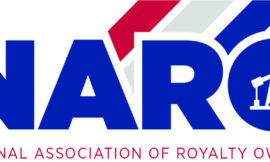Selling your mineral rights? Here’s what you need to know about how to sell your minerals or royalties to get the highest price possible from a sale or lease and the three primary ways this can be done.
This is a deep dive into the 4th tip that we covered in Episode 70 about what to know if you are thinking about selling your minerals or royalties. Specifically we touched on the different ways you can go about selling your property, from hiring a broker to do the leg work for you, to listing it on an auction website, to the DIY route and contacting buyers yourself.
Before we dive in, keep in mind that these tips can also be used if you are interested in leasing your mineral rights so this doesn’t just apply to mineral owners wanting to cash out of their property.
Using the embedded player above, you can download the episode to your computer or listen to it here! Be sure to also subscribe on iTunes!
Using a Mineral Rights Auction Website to Sell or Lease Minerals
The type of auction that is usually used on most oil and gas auction websites is what is called an open ascending-bid auction (also known as an English auction). That is, the bidding starts at a set price and bidders make increasingly higher bids up to a maximum price that they set based on the limit that they are willing to pay for the property in question. This process continues until no auction participant is willing to make a higher bid or the auction ends, whichever occurs first.
In theory, by leaving the bidding open for a 7-14 day period which is customary for most auction sites, they will attract all of the bidders who are interested in the property so they should reach the high bid for each bidder. In most cases, the highest bidder wins the property at the final bid amount.
When listing your property on an online auction website, by providing as much relevant information as possible will help attract quality buyers and increase the odds that you will be able to sell or lease for the highest price. At the end of this article we talk about the type of information you should make available in your “data room” for your minerals or royalties.
Setting a Reserve Price
That said, some sites allow you to set a reserve price such that the lot is only actually sold if the bidding meets or exceeds that price. The reserve price is the minimum price that you are willing to accept in the auction. Most sites allow you to set a reserve price to protect against selling the property below this amount.
Mineral Rights Auction Commission Fee
When compared to the other ways you can go about selling your mineral rights and royalties, using an online auction website is usually the most expensive. Some companies charge and others use a sliding commission scale where the % commission depends on the sales price.
For example, if you sell property worth more than $1,000,000 you might pay 5% of the sales price to the auction company whereas if you sell property for $100,000 you might pay up to 10% of the sales price. The typical commission range for properties valued less than $1,000,000 is between 5-10% of the sales price.
Mineral Auction Listing Fees
Some mineral rights and royalties auction and listing websites also charge a listing fee if you do not end up selling the property. For example, if you list your property for sale at auction but the bids that you receive are all below the reserve price that you set and you decide to not accept any offers, you may still have to pay a fee for listing the property. This helps offset the cost of the work done to list your property by the site.
Pros and Cons of Online Auctions
- Pros – One of the selling points that many auction sites claim is the large number of “qualified buyers” that will see your property. Keep in mind that there may be several thousands of these “qualified buyers” but only a fraction of them are active on the site and there may be only a fraction of these buyers who are actually buying in your area.
- Cons – Like any method you choose, making the most of the auction process requires an understanding of your minerals and what they might be worth. If you set the reserve price too low or don’t set a reserve price and don’t attract many bids, you may be committed to selling your property at below market value. Also, having marketable title may be a pre-requisite to being able to list on some sites.
Hiring a Mineral Rights Broker to Sell or Lease Mineral Rights
Hiring a broker to help you sell your mineral rights or royalties is another option that can be used. This method is similar to hiring a seller’s agent to help you sell your house. By hiring a broker who works solely on your behalf, you will have a trusted advisor in your corner to help walk you through all steps in the sales process.
Many brokers also provide valuation services to help you understand what your property might be worth. Understanding the market value is key when setting a realistic asking price for your minerals and having this information provides a basis for evaluating offers.
Most brokers have the ability to create professional marketing presentations and can help put together a compelling story as to why your property is a good investment for potential buyers.
In addition to the valuation and marketing aspects, a turnkey broker will also solicit purchase or lease offers on your behalf and present you with these offers. They can also help coordinate closing and have a network of attorneys who can help review and prepare any documents.
Mineral Rights Broker Fees
Like with the various mineral rights auction and listing websites out there, the fees vary by company. At Silverheels Investments LLC, we charge a flat 3% commission. Some brokers may also charge a minimum fee if your property is very small.
The key is to look for broker who has a success based fee. A success based fee means that they only get paid if you sell. Many brokers may charge fees for providing valuation services or for listing your property in the event you decide not to sell. This is similar to the listing fee that online auction sites charge if you don’t sell and covers the cost of their time or for providing proprietary services like valuations or appraisals. In any case, make sure they provide a copy of their listing agreement that spells everything out.
Pros and Cons of Mineral Rights Brokers
- Pros – Using a broker is more of a custom solution. Many brokers can do a lot of up-front work like perform a valuation to help you set a realistic asking price. Many brokers are cheaper than auction websites and provide more tailored services. As long as they are marketing your property to the right buyers, you’ll likely reach the same outcome but without having to pay as high a commission.
- Cons – Whereas an auction site may have tens of thousands of registered buyers, most brokers have a smaller network of targeted buyers that they will market your property to.
The For Sale By Owner Route
When we talk about the Do-It-Yourself (DIY) method of selling your mineral rights or royalties it falls under two categories. The first would be any unsolicited offers and the second is soliciting purchase offers for your mineral rights from buyers. For the purposes of this episode, we are focusing on the process of identifying end buyers and contacting them to obtain purchase or lease offers.
As with the other two methods, it is important to get help from a qualified attorney who is licensed to practice law in your jurisdiction. They can help you prepare a purchase and sale agreement, prepare or review any deeds before you sign them, and help with updating your estate plans to reflect the sale.
In order to sell or lease your mineral rights for the highest price when doing it yourself, there are a few things to keep in mind. The first is to identify the right buyers to talk to.
How to Identify Top End-Buyers in the County Where You Own Minerals
One way to identify who is actively buying or leasing minerals in your area is to search county records. To do this, you look at the Grantor/Grantee index and look for document types related to mineral rights and royalties. If you are looking for buyers you would search for mineral deeds and look for the names of Grantees (the buyers) that show up frequently.
It is also important to look for cases where these buyers also show up as the Grantor for another deed with the same legal description that was also recorded soon after the original purchase. This is an indication that the company may be flipping properties and are probably not the buyer you want to contact. Their business model is to arbitrage between the individual mineral owner and the ultimate end buyer.
You are likely to be able to sell for a higher price by contacting these end buyers directly (these are the companies that show up as the grantee in the second transaction in the example I gave above).
Once you identify several potential end-buyers, the next step is to do some research on these companies. You can do this with a quick internet search and by looking at their websites. It is also a good idea to find out what other mineral owners have to say about their experience working with the company. Ask your neighbors, post a question on MineralRightsForum.com, or leverage your local chapter of the National Association of Royalty Owners to identify other mineral owners you can talk to.
Pros and Cons of Doing it Yourself
- Pros – This is usually the lowest cost option and you are in total control of every step. You also will be fully informed as to where you are in the sales process.
- Cons – It requires a lot more work. You also need to be more educated on how to find out the activity level around your property, you need to have a deeper knowledge operator activity and what the market is for minerals and royalties in the basin. You also need to be able to identify and contact reputable buyers on your own. You also don’t have a sounding board to talk to in order to get advice.
All three options can be utilized when leasing your minerals as well.
The Hybrid Approach to Selling Mineral Rights
A hybrid approach is to hire a consultant to perform the valuation and prepare marketing materials for you and so if you were to go this route and want to market the property yourself. Using this option allows you to obtain the same high quality services that you would get by using a broker while keeping costs under control.
Under this scenario you would likely end up paying between $800-$1200 per property for these services but then would save the additional costs of the broker’s contingency fee or commission.
How to Prepare Your Data Room Documentation For Buyers
The term “data room” refers to the proprietary information related to oil & gas properties being marketed for sale or lease. In order to build a compelling case as to why a buyer should make an offer on your property, it is important to organize the supporting documentation that will help sell your minerals or royalties.
This information should be organized regardless of the method you decide to use to sell or lease. Here is the key information to make available for potential buyers or lessees:
- A written description of the property being sold and what exactly you are selling. This includes the legal description and a summary of the key facts like:
- Is the property leased or not, is it in primary term, royalty rate, held by production, etc.
- Are there any liens or mortgages against the property, if so how much? Are there any outstanding property taxes due?
- Producing wells, well name and API number, your Net Revenue Interest in each well
- What you are selling, are you selling 100%, 50%, an NPRI, in other words, what exactly are you marketing for sale.
- For royalty interests, the average monthly royalty income over the past 3 months
- Copies of check stubs for at least the past 3 months
- Copies of any Division Orders for producing wells showing your NRI
- Copies of any conveyance documents showing you as the current owner of record. Example: mineral deed, personal representative’s deed, lease assignment, etc. If the property is still showing your relative as owner of record but you have documentation that you are an heir to that property, then copies of that paperwork (e.g. estate documents like will, trust, etc.). If you don’t have marketable title (e.g. you are not the owner of record), be prepared to negotiate how this will be handled with potential buyers. You will likely need to go through probate or get an order determining heirship to clear title in the county where the minerals are located before you can close. Who pays for this and how it is handled can be negotiated as part of the sale.
- If you are selling a non-operated working interest, you will need copies of your JIB (joint interest billing statements) showing lease operating expenses and check stub details for the past several months as well. Summarizing this information in a table showing the net income over this time period is helpful as well.
- If you have a copy of the Joint Operating Agreement for the working interest then that is helpful in the buyer understanding the terms and their rights and they will ask for this anyway so it is a good idea to have it available from the start.
- If you have maps or plats for any wells that have been permitted or drilled that shows the location of the well relative to your tract that is very helpful. Especially if the wells have irregular wellbore spacing units and the plat shows how much your tract makes up the entire spacing unit.
- If you hired a consultant to perform a valuation for you, you can also make the economics database or output available as part of the data room for your property. Anything you can use to justify your asking price or to illustrate why your property is a good investment should be included.
Summary
Selling your mineral rights is a big decision. Remember that you are in the driver’s seat and don’t let buyers pressure you with arbitrary time deadlines. (For other red flags to look out for when selling, check out Episode 5 of The Mineral Rights Podcast). If you haven’t already, be sure to listen to Episode 70 for 5 Tips if You are Thinking About Selling for some of the high level considerations around this important decision.
While conventional wisdom says to hold on to your minerals, if you do sell it is important to educate yourself and take the steps to ensure that you make the most of the situation. If you are thinking about selling your minerals or royalties, and want to make sure that you are taking the right steps, get our free cheat sheet with all the details to help you sell your property for top dollar like a pro.
As always, this should not be construed as investment, tax, or legal advice. Please consult your accountant, financial advisor, or attorney for advice specific to your situation.
Need Help?
- My company, Silverheels Investments LLC, provides mineral valuation services and can help you sell mineral rights to qualified buyers.
- I’m happy to provide my listeners with a free 15 minute phone consultation to help you understand your options and potential costs whether you work with us or decide to go another route.
- Matt’s Direct Line: (720) 449-2328
- Email Matt: info@silverheelsinvestments.com
Thanks for Listening!
To share your thoughts:
- Leave a comment or question below (we read each one and your question may be featured in a future episode)!
- Ask a question or leave us feedback via email or voicemail: (720) 580-2088.
To help out the show:
- Leave an honest review on Apple Podcasts or wherever you get your podcasts – we read each one and greatly appreciate it. Plus, you can get a shout out on a future episode!
Thanks again – until next time!




Pingback: MRP 80: Listener Questions for 2020 - Part One – The Mineral Rights Podcast
Pingback: MRP 81: Listener Questions - Part Two – The Mineral Rights Podcast